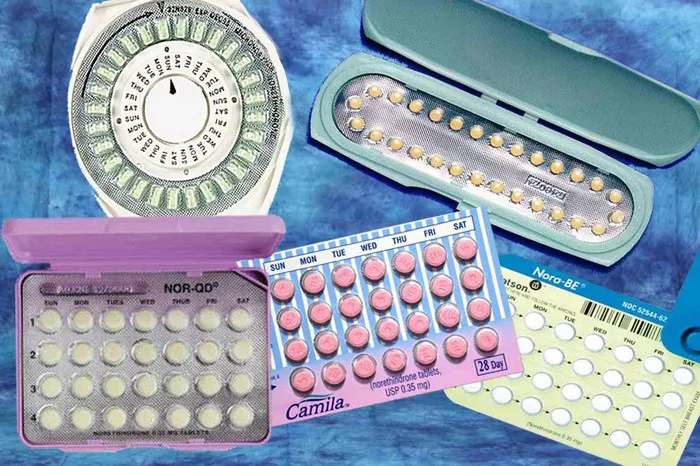Clostridioides difficile, commonly known as C. diff, is a bacterium that can cause symptoms ranging from mild diarrhea to life-threatening inflammation of the colon. It is one of the most common healthcare-associated infections, particularly affecting individuals who have been recently hospitalized or have received antibiotics. Testing for C. diff is crucial for prompt diagnosis and appropriate management. In this article, we will delve into the details of C. diff infection, its diagnostic methods, and the importance of early detection.
What is Clostridioides difficile (C. diff)?
C. diff is a spore-forming bacterium that can be found in soil, water, and the gastrointestinal tracts of humans and animals. While it typically resides harmlessly in the gut, certain conditions can lead to its overgrowth and toxin production, resulting in infection. Antibiotic use is one of the primary risk factors for C. diff infection, as antibiotics can disrupt the balance of normal gut flora, allowing C. diff to proliferate.
Diagnostic Methods for C. diff Infection
Prompt and accurate diagnosis of C. diff infection is essential for initiating appropriate treatment and preventing the spread of the bacterium. Several diagnostic methods are available, including:
Stool Tests: The most common method for diagnosing C. diff infection is the detection of C. diff toxins in stool samples. Enzyme immunoassays (EIAs) can detect toxins produced by C. diff directly in stool specimens. Polymerase chain reaction (PCR) tests can also identify the presence of C. diff DNA in stool samples with high sensitivity and specificity.
Glutamate Dehydrogenase (GDH) Test: This test detects the presence of a protein called glutamate dehydrogenase, which is produced by C. diff. A positive GDH test indicates the presence of C. diff and should be followed by confirmatory testing for toxins.
Colonoscopy or Flexible Sigmoidoscopy: In cases where stool tests are inconclusive or when complications such as toxic megacolon are suspected, healthcare providers may perform a colonoscopy or flexible sigmoidoscopy to directly visualize the colon and collect tissue samples for testing.
Imaging Studies: Imaging techniques such as computed tomography (CT) scans may be used to assess the severity of C. diff infection and detect complications such as perforation or toxic megacolon.
Challenges in Testing for C. diff
While various diagnostic methods are available for detecting C. diff infection, there are challenges associated with each approach. Stool tests may yield false-negative results if the concentration of C. diff toxins in the sample is below the detection limit of the assay. Additionally, PCR tests, while highly sensitive, may detect C. diff DNA in individuals who are asymptomatic carriers or who have recently been treated for C. diff infection, leading to overdiagnosis and unnecessary treatment.
Furthermore, the interpretation of test results can be complicated by factors such as prior antibiotic use, the presence of other gastrointestinal infections, and variations in test sensitivity and specificity between different assays.
The Importance of Early Detection and Treatment
Early detection of C. diff infection is critical for initiating appropriate treatment and preventing complications. Prompt initiation of antibiotics such as vancomycin or fidaxomicin can help eradicate the bacterium and alleviate symptoms. In severe cases or cases refractory to antibiotic therapy, fecal microbiota transplantation (FMT) may be considered to restore the balance of gut flora.
In addition to pharmacological treatment, supportive measures such as fluid replacement and electrolyte management are essential for managing dehydration and other complications associated with C. diff infection.
Prevention Strategies
Preventing C. diff infection is paramount, particularly in healthcare settings where transmission can occur readily. Key strategies for preventing C. diff infection include:
Antibiotic Stewardship: Limiting the unnecessary use of antibiotics can help prevent disruptions to the normal gut flora and reduce the risk of C. diff infection.
Hand Hygiene: Healthcare workers should adhere to strict hand hygiene practices, including handwashing with soap and water or using alcohol-based hand sanitizers.
Contact Precautions: Patients with suspected or confirmed C. diff infection should be placed on contact precautions to prevent transmission to other patients.
Environmental Cleaning: Proper cleaning and disinfection of patient care areas and medical equipment can help reduce the environmental reservoir of C. diff spores.
Conclusion:
Clostridioides difficile infection is a significant healthcare-associated infection associated with substantial morbidity and mortality. Timely and accurate diagnosis of C. diff infection is crucial for initiating appropriate treatment and preventing complications. While several diagnostic methods are available, each has its limitations, and healthcare providers must carefully interpret test results in the context of the clinical presentation. Emphasis on prevention strategies, including antibiotic stewardship and infection control measures, is essential for reducing the burden of C. diff infection in healthcare settings and the community at large.
FAQs
Q1. What is the 2 step test for C. diff?
The two-step test for Clostridioides difficile (C. diff) infection involves screening with a sensitive assay for glutamate dehydrogenase (GDH) and confirming positive results with a specific toxin test, such as enzyme immunoassay (EIA) for toxins A and B or nucleic acid amplification tests (NAATs).
Q2. What is the gold standard test for C. diff?
The gold standard test for C. diff is considered to be toxigenic culture or polymerase chain reaction (PCR) for C. diff toxin genes. These methods directly detect the presence of toxigenic C. diff strains, offering high sensitivity and specificity.
Q3. Can a mild case of C. diff go away on its own?
In some cases, mild C. diff infections may resolve on their own without requiring specific treatment. However, it’s important to monitor symptoms closely and seek medical advice if symptoms worsen or persist. Mild cases may resolve spontaneously due to the body’s immune response clearing the infection.
Related topics:


